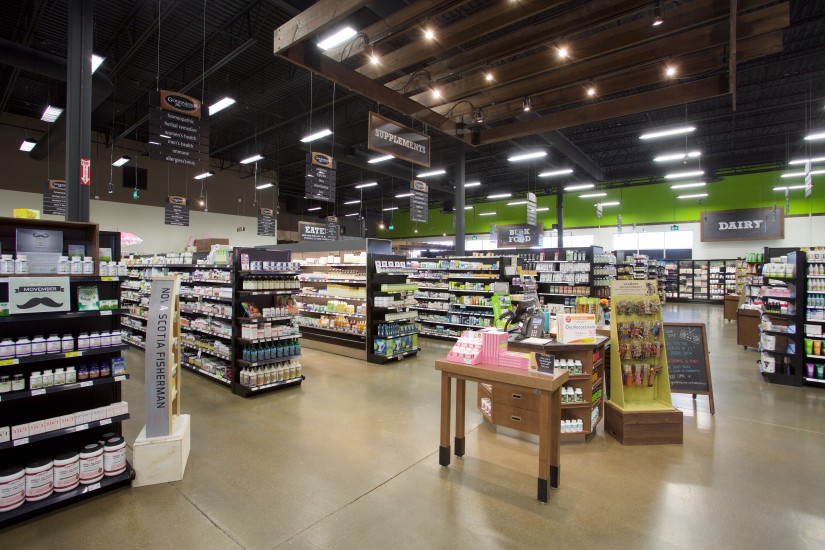The retail industry is always evolving. The history of retail in North America is riddled with acquisitions and mergers; expansions and bankruptcies. Recently, myself and other Cayuga staff toured a brand new two-storey Wegmans supermarket outside of Boston. This store is taking over a vacated JC Penney space. It's a unique opportunity for the grocer — there are wide aisles and plenty of space for eating spots, and a separate wine & liquor section!
When it comes to food retail, one of the biggest struggles is finding good real estate. New grocery stores and supermarkets need to be well situated in a community, and the store space itself needs to be able to hold and display a very wide variety of products — and nowadays many have to do so within a confined space. But, with the volatility we’re seeing in the retail industry, more and more retail stores spaces are opening up — especially large ones that used to hold department stores.
How does this impact food retailers?
Redefining traditional workspaces
Earlier this month, it was announced that a vacant Sears space in the CF Champlain shopping centre in Dieppe, New Brunswick, is going to be transformed into a TD corporate office. While finance operations and business services offices open for business, 140 retailers and food vendors will benefit from sharing the same property with the financial giant.
Employees want a mix of everything in their workplace. With more and more companies building campuses — that contain everything from gymnasiums, auditoriums, yoga studios, to food courts — modern employees are realizing what they’d like when it comes to amenities near the workplace. What’s happening with Sears Canada is a prime example.
This term coined for what’s happening with retail real estate is mixed-use assets. Realtors and landlords are looking at creative, unique ways of using the thousands of empty square footage opened up by retail bankruptcies. This means that, while new office spaces are opening up, there is an opportunity for food retailers — unique spaces are opening up too, and these spaces call for extraordinary food shopping experiences.
The rise of online shopping and condo culture
If there’s a major reason why retailers are closing up shop or going bankrupt, it’s the shift of consumer behaviour and habits. Why bother going to a physical store when you can buy just about anything online?
A lot of big box retailers are realizing that they don’t need nearly as much space as they have, as more and more of their sales are moving online. And, if they haven’t adapted quickly enough to online sales, many are biting the bullet. In Ontario, Denninger’s is moving into some Target stores in Burlington and Vince’s Market is moving into an old Sears store. In the U.S., Kohl’s is actually splitting some of their stores' square footage up and partnering with grocers and convenience store retailers to fill the empty space!
On top of this, many cities are burgeoning in population size, which is causing developers to turn mall spaces into condos. The interesting thing with this is that they’re also adding supermarkets. These intriguing spaces are like miniature communities where folks live, shop and go out for entertainment.
The food retail landscape is much different. Sure, we can buy or order food online, but outstanding in-store experiences are difficult to replace. Studies show that consumers are making more frequent visits to grocery stores — and many are buying ready-made meals or meal kits. Affordable luxuries like meat, cheese and artisan bread also keep people coming back. Food appeals to every single one of our senses, and food retailers need to take advantage of this! There’s nothing like holding or smelling food before purchasing it — something that just can’t be done online.
At Cayuga, we encourage meeting the challenges posed by retail trends head-on. One way to do this is through making changes in food display and shelving layout. We're quite familiar with the unique challenges of developing cases and fixtures for urban and small-footprint retail locations. We can work with you to create self-contained cases, vertical merchandising (to maximize use of space), and work around what's already in place in a store. If you’ve noticed that some of these trends are impacting your business, reach out to us and let’s chat!

